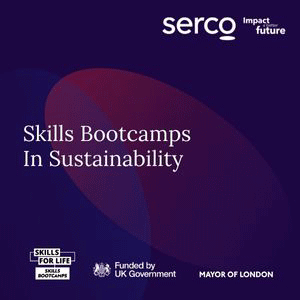Foreign and Commonwealth Office
|
|
Reaching an inclusive and Syrian-led political process in Syria
Statement given yesterday by Ambassador James Roscoe, UK Acting Deputy Permanent Representative to the UN, at the Security Council briefing on Middle East (Syria Political).
Merci, Mr President.
Mr President, I’d like to begin by once again thanking the Special Envoy for his briefing, and a thank you also to Miss Noura Ghazi for joining us today and for her heartfelt yet clear eyed appeals for justice. We felt the pain you expressed on behalf of so many Syrians. Thank you.
We remain deeply concerned at the security situation in north-west Syria and we welcome the 5th of March ceasefire agreed between Russia and Turkey, which brought a vital period of relative calm to the north-west and allowed some of the million people displaced during the regime and Russian offensive at the beginning of this year to start returning to their homes. But recent weeks have seen fierce fighting between extremists and regime forces and in recent days we are concerned to hear reports of renewed Russian airstrikes, some of which cause civilian casualties on the 8th of June and prompted others to flee. The UK fully supports the request of the UN Special Envoy and Secretary-General for a lasting cessation of hostilities in the north-west and throughout Syria. This Council and the UN have repeatedly warned a continued escalation in fighting would have catastrophic consequences for the three million Syrian civilians in the north-west. We urge all parties to show restraint and to redouble efforts to work together and with the Secretary-General and his Special Envoy to find a political solution, particularly at a time when Covid-19 poses a severe threat in a country already weakened by conflict.
As we agreed unanimously in Resolution 2254, and have reiterated many times since, the only sustainable solution to the crisis in Syria is through an inclusive and Syrian-led political process that meets the legitimate aspirations of the Syrian people. And yet, despite this unanimous agreement, the Syrian regime, aided and abetted by a permanent member of this council, has ignored Resolution 2254 and continued to subjugate the interests of the Syrian people to its pursuit of a military solution. The devastating effect of this policy on the Syrian people and the Syrian economy are increasingly clear and compounded, as we heard from Mr Pedersen, by global factors. The collapsing economy in Syria is exacerbating the plight of civilians in all parts of the country. While Covid-19 and the problems of the Lebanese economy are clearly important, contributing factors, the main cause for the state of the Syrian economy remains the years of conflict, corruption and mismanagement by this regime. Unless the regime resolves to engage genuinely in political dialogue, to focus on reform and address the legitimate concerns and aspirations of the Syrian people, there will be no sustainable solution. While the crisis intensifies, the UK continues to support OCHA and the World Health Organisation in providing lifesaving assistance to those who need it most. Whilst the cross-border aid mechanism is a temporary measure to achieve this, the Secretary-General has made clear in his report that there is not yet any alternative either in the north-west or the north-east.
It is with this in mind that UN Security Council Resolution 2504 must be renewed for a further 12 months and cross-border assistance into the Northeast must be reauthorised.
We note that last week, Assad sacked his Prime Minister, and at the end of May he appointed a new set of governors, no doubt to give the impression that he is doing something to address the problems facing Syria and his failure to deal with them. But that is not what Syrians have been calling for. What they need and what they deserve is a better Syria, and for the concerns and grievances that brought them into the streets in 2011 to be addressed. It is in this connection that we greatly commend the work of Noura Ghazi for the rights of the families of the detained. We have discussed time and again at these council sessions the need for the regime to engage properly on the detainee’s file.
Limited prisoner swaps and not enough. We urge the regime to make widespread releases of political prisoners and vulnerable people and to ensure medical care is available for those still in detention. This is all the more important given the threat posed by Covid-19. We are proud the UK is able to support Noura’s work through the Women’s International League for Peace and Freedom.
Finally, Mr President, we have heard criticism again today of sanctions against the Syrian regime. The way to achieve the removal of these sanctions is clear. Rather than interfering with aid, bombing schools and hospitals and detaining and torturing its people, the regime must heed the cause of its population and engage seriously with Special Envoy Pedersen and the UN led political process, to achieve a peaceful end to the conflict.
As we say again, goods and medical supplies used for humanitarian purposes are not subject to EU sanctions, which the UK continues to apply, and additional exemptions from sanctions are available for humanitarian activity in Syria. I would note again that the UK and our European partners are among the leading donors to humanitarian aid to Syria, including in regime held areas. Thank you, Mr President.
Original article link: https://www.gov.uk/government/speeches/reaching-an-inclusive-and-syrian-led-political-process-in-syria


